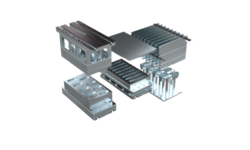Medacube Login ⏬⏬
Welcome to Medacube Login, your gateway to efficient healthcare management. Medacube is a cutting-edge digital platform designed to streamline and enhance the patient experience, providing easy access to medical records, appointment scheduling, and vital health information. With our user-friendly interface and robust security measures, Medacube Login empowers both patients and healthcare professionals to collaborate seamlessly, ensuring personalized care and informed decision-making. Whether you are a healthcare provider or an individual seeking personalized healthcare solutions, Medacube Login is here to revolutionize the way you engage with your health.
Medacube: Revolutionizing Medication Management
Medacube is a cutting-edge solution that aims to revolutionize medication management for individuals. With its innovative features and user-friendly design, Medacube ensures medication adherence and simplifies the process of organizing and administering medications.
The key features of Medacube include:
- Automated Medication Dispensing: Medacube has a built-in automated dispenser that accurately dispenses the required medications at scheduled times, eliminating the need for manual sorting and measuring.
- Reminders and Alerts: The device sends timely reminders and alerts to users, ensuring they never miss a dose. These notifications can be customized based on individual preferences.
- Secure Storage: Medacube provides a secure storage unit for medications, protecting them from moisture, light, and unauthorized access. This helps maintain the efficacy of the medications.
- Accessibility and Ease of Use: The interface of Medacube is designed to be intuitive and easy to navigate, making it accessible for users of all ages. It also offers options for large fonts or audio instructions for individuals with visual impairments.
By incorporating technology into medication management, Medacube addresses common challenges such as medication errors, missed doses, and confusion due to complex medication regimens. It empowers individuals to take control of their health by promoting medication adherence and reducing the risk of adverse drug events.
Overall, Medacube represents a significant advancement in medication management, providing a reliable and efficient solution for individuals seeking improved medication adherence and convenience in their daily lives.
Login
Login is the process of gaining access to a computer system or an online account by providing valid credentials, typically a username and password. It is an essential component of securing and protecting user data in various digital platforms.
During the login procedure, users are required to enter their unique identification information, such as a username or email address, followed by a password. This combination serves as the authentication mechanism, verifying that the user is authorized to access the system or account.
To enhance security, many login systems employ additional measures, including two-factor authentication (2FA), biometric authentication (such as fingerprint or facial recognition), and CAPTCHA challenges. These measures help ensure that only authorized individuals can gain access to sensitive information and protect against unauthorized access attempts.
Once a user successfully logs in, they can access personalized features, interact with the platform, and perform various tasks based on their user privileges. Login functionality is prevalent across a wide range of digital services, including websites, mobile applications, online banking systems, social media platforms, and more.
Additionally, organizations and service providers implement robust security practices to safeguard user login information. This includes encryption techniques, secure storage of passwords using hashing algorithms, and regular monitoring for potential security breaches or unauthorized access attempts.
Medacube Login
Medacube is an online platform that offers convenient access to medical services and allows users to manage their healthcare needs efficiently. The Medacube login feature serves as a gateway for users to securely access their personal accounts and take advantage of the platform’s various functionalities.
When logging into Medacube, users are required to provide their unique credentials, such as a username or email address, and a password. This authentication process ensures that only authorized individuals can access the platform and view sensitive medical information.
Once logged in, users can navigate through different sections of the platform, including their personal profile, appointment scheduling, prescription management, and communication with healthcare providers. The user-friendly interface of Medacube simplifies the overall experience, allowing individuals to conveniently access and update their medical records, track their health progress, and communicate securely with their healthcare team.
It is crucial to ensure that the login information for Medacube remains confidential and not shared with unauthorized individuals. Users are encouraged to create strong passwords, combining uppercase and lowercase letters, numbers, and special characters, to enhance account security.
- Benefits of Medacube Login:
- Convenient access to personal medical records
- Simplified appointment scheduling
- Efficient prescription management
- Secure communication with healthcare providers
- Ability to track health progress
Medacube App: Simplifying Medication Management
The Medacube app is a revolutionary solution designed to simplify and streamline medication management for individuals. With its user-friendly interface and advanced features, the app aims to enhance medication adherence and ensure optimal health outcomes.
One of the key features of the Medacube app is its ability to create personalized medication schedules. Users can easily input their prescribed medications, dosages, and specific time intervals for each medication. The app then generates a comprehensive schedule, reminding users when it’s time to take their medications.
In addition to medication reminders, the app provides detailed information about each medication, including dosage instructions, potential side effects, and interactions with other drugs. This empowers users to make informed decisions about their medications and promotes better understanding of their treatment plans.
Another noteworthy aspect of the Medacube app is its integration with pharmacy services. Users can conveniently order prescription refills through the app, eliminating the need for manual coordination with pharmacies. This feature ensures a seamless medication supply and reduces the risk of running out of essential medications.
The app also offers medication tracking and adherence monitoring. Users can track their medication intake and view their adherence history to identify any patterns or areas for improvement. This data can be shared with healthcare providers, enabling them to assess the effectiveness of the treatment plan and make necessary adjustments if needed.
Overall, the Medacube app serves as a reliable companion for individuals managing multiple medications. Its intuitive interface, medication scheduling, comprehensive drug information, pharmacy integration, and adherence tracking features work together to simplify medication management and promote better health outcomes.
Medication Management
Medication management refers to the process of effectively and safely administering medications to individuals. It involves various aspects, including prescribing, dispensing, monitoring, and educating patients about their medications.
Purpose:
The primary goal of medication management is to ensure the appropriate and safe use of medications to optimize therapeutic outcomes for patients. It helps prevent medication errors, adverse drug reactions, and non-compliance with prescribed treatments.
Components of Medication Management:
- Prescribing: Healthcare professionals, such as doctors or nurse practitioners, assess patients’ conditions and prescribe appropriate medications based on their diagnosis and medical history.
- Dispensing: Pharmacists review prescriptions, prepare medications, and provide instructions on proper usage, dosage, and any potential side effects.
- Administration: Patients take their medications as directed by healthcare providers, adhering to prescribed schedules and recommended dosages.
- Monitoring: Healthcare professionals monitor patients’ responses to medications, assess their adherence, and make necessary adjustments to optimize therapeutic outcomes and minimize risks.
- Educating: Patients receive information and education about their medications, including how to take them correctly, potential side effects, and precautions to be taken.
Benefits of Medication Management:
- Enhanced patient safety by minimizing medication errors and adverse drug reactions.
- Improved treatment outcomes through better adherence to prescribed regimens.
- Reduced healthcare costs associated with avoidable medication-related complications.
- Better understanding and knowledge of medications among patients, leading to increased empowerment and engagement in their healthcare.
Medication management plays a crucial role in ensuring the safe and effective use of medications. It involves prescribing appropriate medications, dispensing them accurately, educating patients about their usage, monitoring their responses, and promoting adherence. By implementing robust medication management strategies, healthcare professionals aim to optimize treatment outcomes, enhance patient safety, and improve overall healthcare quality.
Medication Reminder: Ensuring Timely and Safe Medication Management
In today’s fast-paced world, keeping track of medications can be challenging. However, an effective medication reminder system plays a crucial role in ensuring timely and safe medication management.
A medication reminder serves as a valuable tool for individuals who take multiple medications or have complex dosing schedules. It helps them stay organized, reduces the risk of missed doses, and ensures adherence to prescribed regimens.
One popular form of medication reminder is through smartphone applications. These apps provide customizable features such as setting reminders, tracking medication usage, and sending notifications. They can also generate reports that help individuals monitor their medication adherence over time.
Another useful method is utilizing physical pill organizers. These come in various sizes and configurations, allowing users to compartmentalize their medications by day, time, or type. Pill organizers serve as visual cues, making it easier to remember whether a dose has been taken or not.
In addition to technology-based solutions, simple strategies can also enhance medication adherence. These include linking medication intake to daily routines, using alarm clocks or timers, and placing medication near commonly visited areas to improve visibility and accessibility.
It is important to note that medication reminders should not replace healthcare professional recommendations. They are intended to complement medical advice and aid in medication management.
Remembering to take medications on time is essential for maintaining health and managing chronic conditions effectively. Employing medication reminders, whether through digital tools or traditional methods, can significantly contribute to improved medication adherence and overall well-being.
Prescription Management
Prescription management refers to the systematic process of handling and organizing prescriptions for medications. It involves various tasks such as receiving, verifying, documenting, and dispensing prescriptions accurately and efficiently.
A crucial aspect of prescription management is ensuring patient safety and adherence to medical guidelines. This includes verifying the authenticity of prescriptions, checking for potential drug interactions or allergies, and providing appropriate dosage instructions.
Prescription management systems play a significant role in modern healthcare settings. Electronic systems are commonly used to streamline the process, improve accuracy, and enhance communication between healthcare providers and pharmacies.
- Receiving: Prescription information is collected from patients or healthcare providers. It typically includes details such as the patient’s name, medication name, dosage, and duration of treatment.
- Verification: The received prescription is carefully reviewed to ensure its validity and accuracy. This involves confirming the prescribing healthcare professional’s credentials and checking for any potential issues.
- Documentation: Prescription details are accurately recorded and stored for future reference. Proper documentation helps maintain a comprehensive record of a patient’s medication history and facilitates effective communication among healthcare providers.
- Dispensing: Once verified and documented, prescriptions are dispensed by pharmacists or automated medication dispensing systems. Pharmacists ensure that the correct medication, dosage, and instructions are provided to patients.
Efficient prescription management promotes patient safety, reduces medication errors, and improves overall healthcare outcomes. It allows healthcare providers to monitor medication usage, track adherence, and identify potential issues promptly.
To ensure optimal prescription management, healthcare professionals should stay updated on relevant regulations, adhere to ethical guidelines, and utilize modern technologies that facilitate accurate and secure prescription handling.
Virtual Pharmacy
Virtual pharmacy, also known as online pharmacy or e-pharmacy, refers to the digital platform that allows individuals to purchase medications and healthcare products over the internet. It combines the convenience of online shopping with the accessibility of pharmaceutical services, providing a range of benefits for both patients and healthcare providers.
Virtual pharmacies typically operate through websites or mobile applications, where customers can browse through a wide selection of prescription and over-the-counter medications, as well as various health and wellness products. These platforms often provide detailed information about the medications, including dosage instructions, potential side effects, and precautions, enabling users to make informed decisions.
One of the key advantages of virtual pharmacies is their accessibility. They offer a convenient way for individuals to access essential medications, especially for those who may have difficulty visiting physical pharmacies due to mobility issues, geographical constraints, or time limitations. Virtual pharmacies can be particularly beneficial for individuals living in remote areas or with chronic conditions that require regular medication refills.
Moreover, virtual pharmacies often provide additional services such as online consultation with pharmacists or healthcare professionals. This enables customers to seek advice, ask questions about medications, and receive personalized recommendations without having to visit a physical pharmacy or clinic.
However, it is important to exercise caution when using virtual pharmacies. Patients should ensure that they are purchasing from reputable and licensed platforms to guarantee the authenticity and quality of the medications. It is advisable to consult with a healthcare professional before starting any new medication or treatment regimen.
- Benefits of virtual pharmacies:
- Convenient access to medications and healthcare products
- Greater accessibility for individuals with mobility or geographical constraints
- Additional services such as online consultations
Healthcare Technology: Revolutionizing the Future of Healthcare
In recent years, healthcare technology has emerged as a driving force in transforming the healthcare industry. It encompasses a wide range of technological advancements and innovations that aim to improve patient care, streamline processes, and enhance overall healthcare outcomes.
One of the key areas where healthcare technology has made significant strides is electronic health records (EHRs). EHR systems have replaced traditional paper-based medical records, enabling healthcare providers to store, access, and share patient information electronically. This has led to improved accuracy, efficiency, and coordination of care among different healthcare professionals.
Telemedicine is another area revolutionized by healthcare technology. It involves the use of telecommunications and digital communication tools to provide remote medical services. Telemedicine allows patients to consult with healthcare professionals virtually, overcoming geographical barriers and increasing access to healthcare, particularly in rural or underserved areas.
Furthermore, wearable devices and mobile health applications have gained popularity in recent years. These technologies enable individuals to monitor their health parameters, such as heart rate, activity levels, and sleep patterns, in real-time. They empower individuals to actively participate in managing their health, promoting preventive care, and early intervention.
Artificial intelligence (AI) and machine learning (ML) also play crucial roles in healthcare technology. AI algorithms can analyze large datasets and provide valuable insights for diagnosis, treatment planning, and predicting health outcomes. ML algorithms can continuously learn from data, enabling personalized treatment plans and improving clinical decision-making.
Additionally, robotics and automation have been implemented in various healthcare settings. Robotic-assisted surgery, for instance, offers precision, minimally invasive procedures, reducing risks and enhancing surgical outcomes. Robots are also used in medication management, logistics, and patient monitoring, freeing up healthcare professionals’ time and ensuring efficient healthcare delivery.
Patient Medication Tracking
Effective patient medication tracking is crucial for ensuring the proper management and adherence to prescribed medications. It involves the systematic monitoring and recording of a patient’s medication regimen, which helps healthcare professionals track medication usage, identify potential issues, and optimize treatment outcomes.
A commonly used method for patient medication tracking is the use of electronic health records (EHRs) or specialized medication tracking software. These systems allow healthcare providers to document the medications prescribed to a patient, including dosage instructions, frequency, and duration of use. EHRs can also provide alerts and reminders for medication administration, reducing the risk of missed doses.
In addition to electronic systems, patients can actively participate in medication tracking through various means. This may include maintaining a medication log or journal, using pill organizers, or setting up smartphone reminders. Patient engagement is essential in promoting medication adherence and helping healthcare providers make informed decisions about treatment adjustments.
By accurately tracking patient medications, healthcare professionals can assess the effectiveness of prescribed treatments, identify any adverse reactions or drug interactions, and make necessary modifications. This data also facilitates communication between different healthcare providers involved in a patient’s care, enabling coordinated and comprehensive treatment plans.
- Benefits of Patient Medication Tracking:
- Enhances medication adherence and reduces the likelihood of missed doses.
- Helps identify patterns of medication usage and potential issues.
- Improves communication and coordination among healthcare providers.
- Facilitates timely adjustments to medication regimens based on patient responses.
- Supports better patient outcomes and overall treatment effectiveness.



